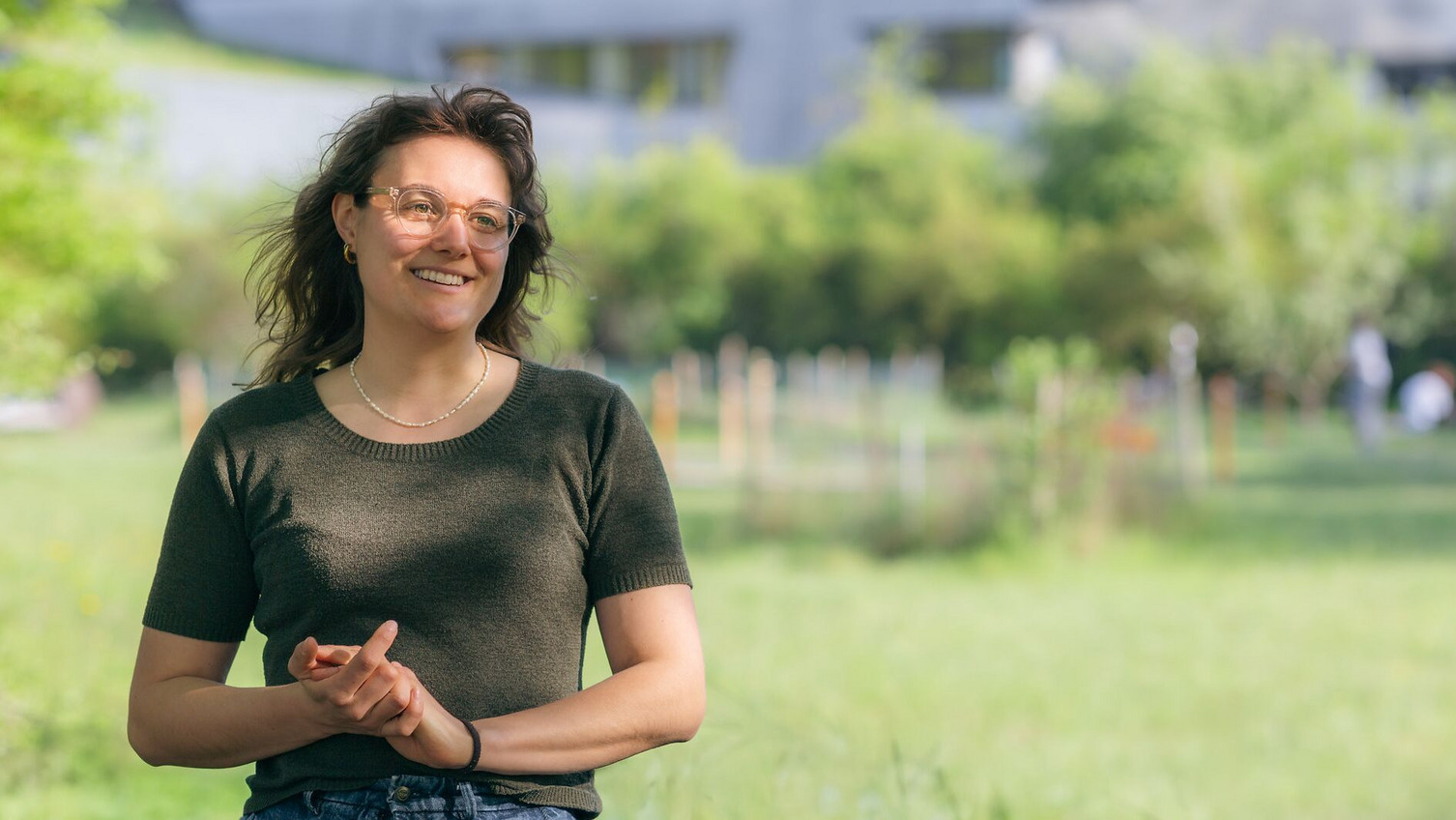Alumna in portrait: Julia Gobs - Between sun trap and wild zone
2025-05-22 The sustainability scientist planned a forest garden for Johanneum Gymnasium Lüneburg in her master's thesis. She has now been awarded the GAIA Master Student Paper Award for the resulting publication.
Mediterranean plants grow in the sun trap. They cope well with drought. A geography lesson on climate change could take place there. Pupils will soon be learning all about insects in the flower meadow. They can relax and socialize with friends in the swinging forest. The forest garden that Julia Gobs planned for the Johanneum in her master's thesis doesn't just serve the official curriculum: "The possibilities are endless. Art lessons, for example, could take place in the forest garden in the same way as biology or politics. At the same time, it's about trying out new learning formats, experiencing nature or self-efficacy in gardening," explains Julia Gobs.
A food forest is more than just a beautifully designed green space: a forest-like ecosystem with landscape types ranging from a high-maintenance wetland to a wild zone that is left to its own devices is being created on around 1000 square meters at the Johanneum. Fruit and other plants are also grown that can be used in the school's own canteen. Pupils learn more about sustainable nutrition and what an agricultural system of the future could look like on site and through their own experiences.
Julia Gobs conducted interviews and a future workshop with pupils and teachers to develop the “forest garden” teaching and learning location. Together with landscape architects and the city of Lüneburg, the planning for the forest garden at the Johanneum began. The results of the research were incorporated into Julia Gob's master's thesis. She completed the Sustainability Science program at Leuphana last year. Julia Gobs was awarded the GAIA Master Student Paper Award for her scientific analysis. “I wrote a specialist article in English based on my Master's thesis,” reports Julia Gobs. She was supported by her supervisors Daniel Fischer, Professor of Education for Sustainable Development and Sachunterricht, and Dr. Agnes Friedel, who plans and builds forest gardens in the region with the participation of students. The publication was recognized in particular for its examination of forest gardens as multifunctional learning spaces that promote the sustainable development of schools as part of the Whole School Approach (WSA).
Julia Gobs wanted to write a Master's thesis with a transformative impact. Transdisciplinarity was already part of her Master's degree: In a two-semester project module, sustainability master's students deal scientifically with real-world problems. “I see winning the prize not only as a personal award, but also as an opportunity to advance the scientific discourse surrounding forest gardens and education for sustainable development (ESD),” says the alumna.
Julia Gobs is currently working in the solidarity farming organization “WirGarten Lüneburg eG” and taught a project seminar at Leuphana last semester. During and after her studies, she is involved in sustainability initiatives such as Acker e.V. and Essbarer Campus.
Julia Gobs will be moving to Munich in a few months. But she will be back in Lüneburg at the latest when the first trees are planted in the forest garden in winter.

